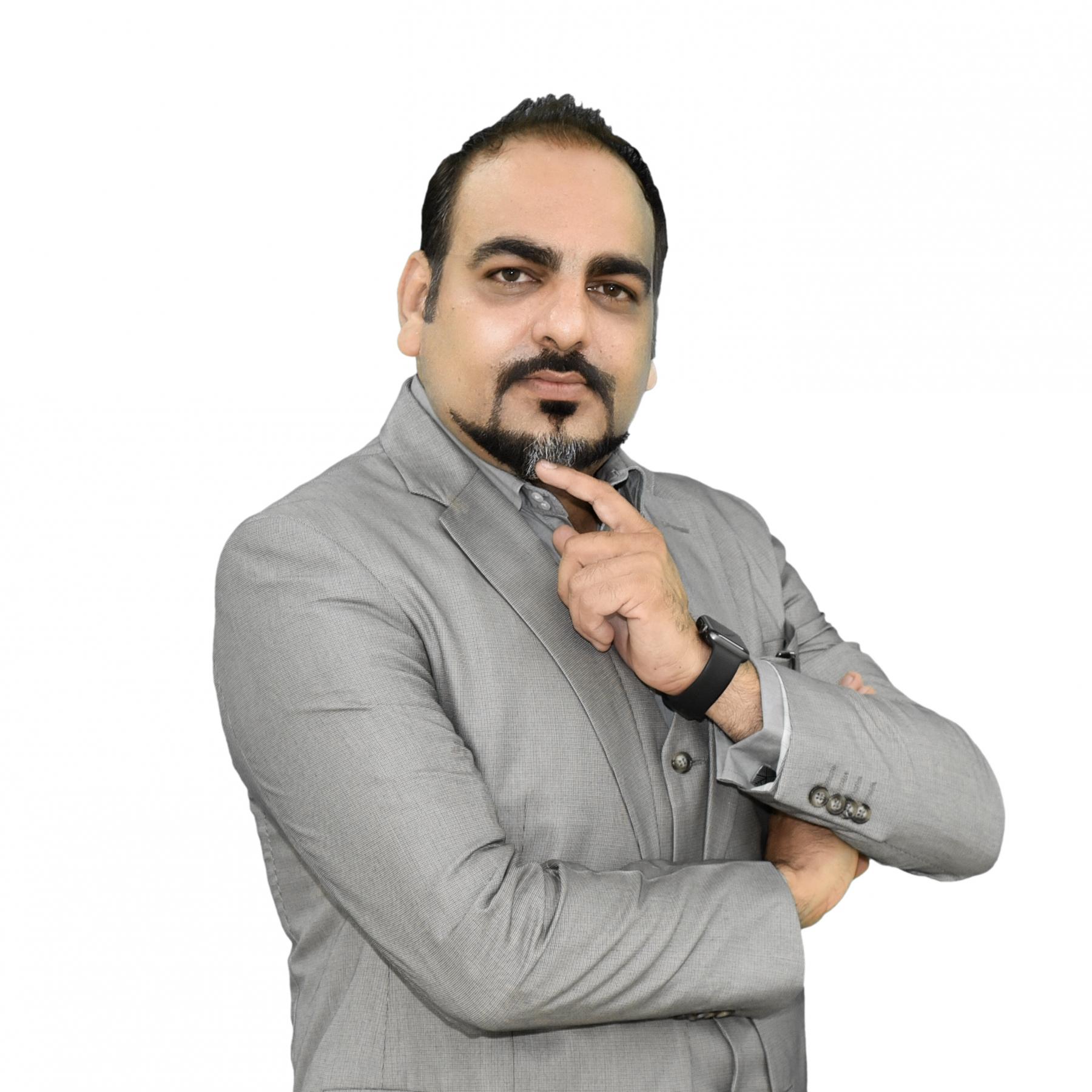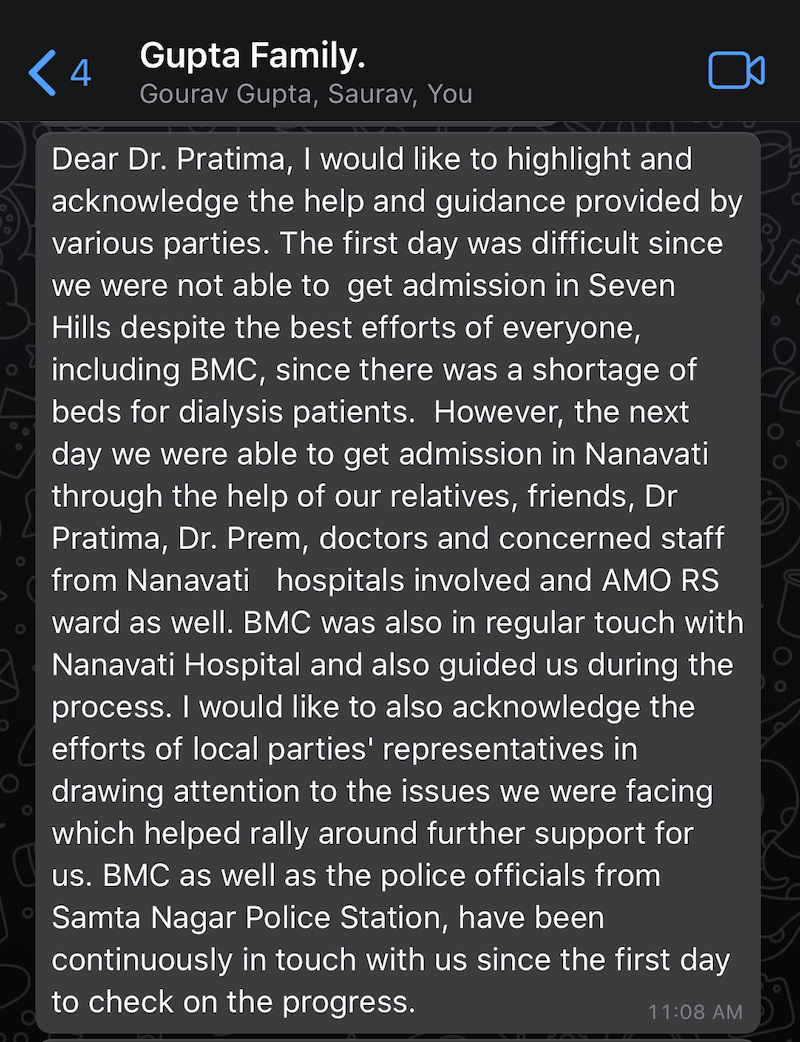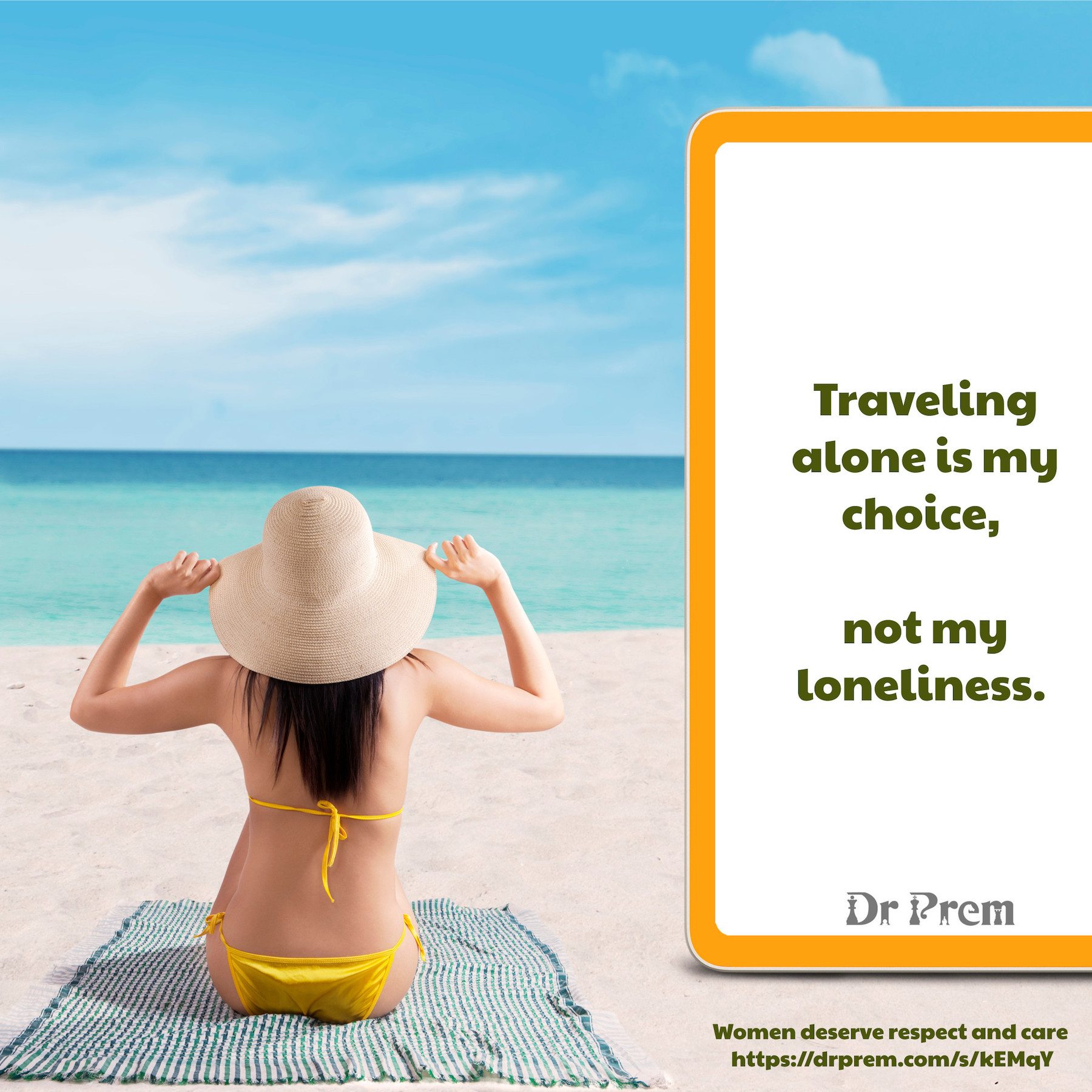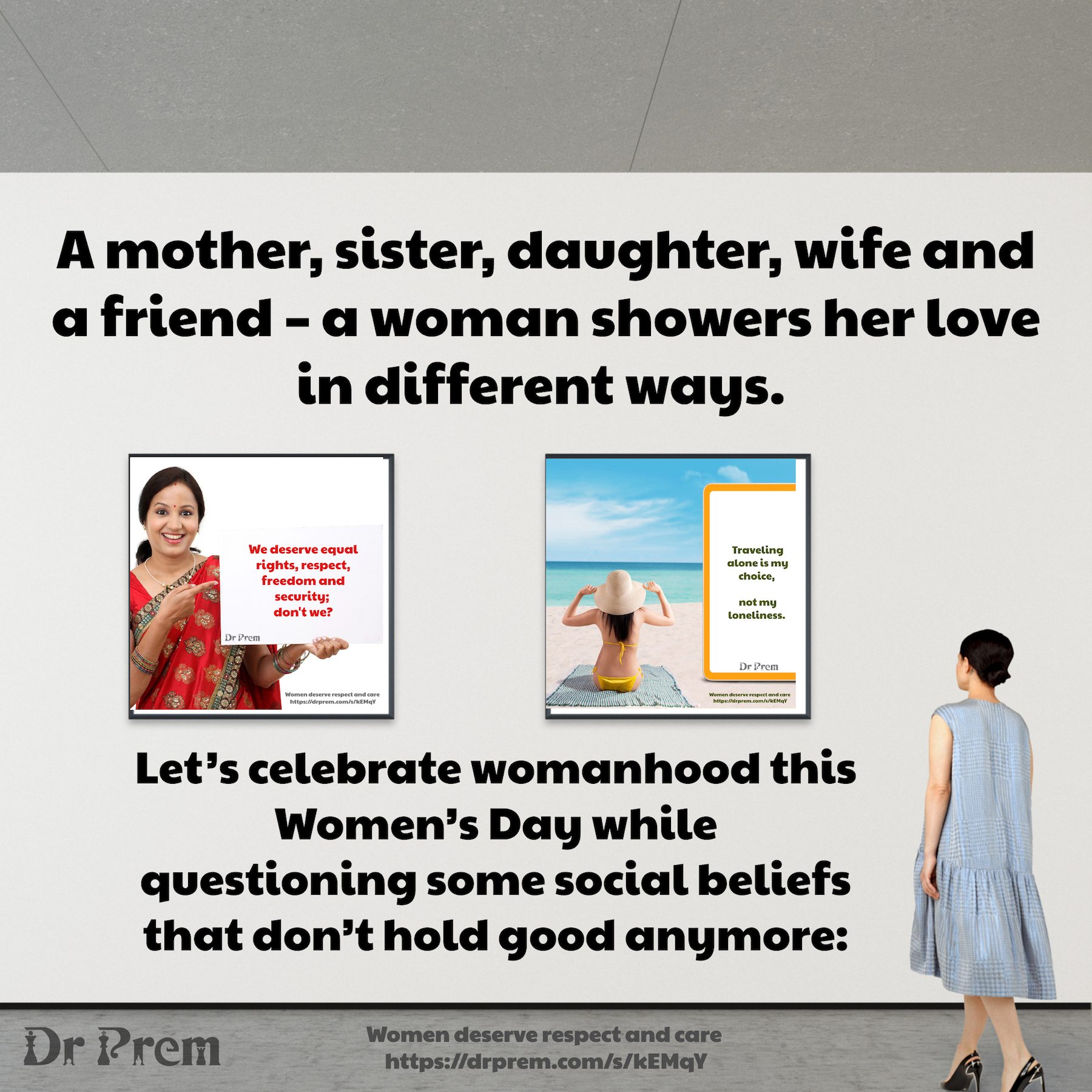In our rapidly evolving digital world, the complexities of Artificial Intelligence (AI) remain a subject of immense intrigue and study. Dr. Prem Jagyasi, a luminary in healthcare and wellness, offers an enlightening analogy to demystify AI, likening it to the natural process of a seed’s growth. This analogy not only makes the intricate world of AI approachable but also vividly illustrates its principles. In this expanded narrative, we delve into each element of the analogy – the seed, the soil, the water, and the sun – to unravel AI’s multifaceted nature, underscoring its potential and challenges in a world increasingly reliant on digital intelligence.
Read more
Our opinions and views matter a lot and so do the opinions and views of others. Human beings tend to form views and opinions about just anything and everything. The opinions that we form can influence someone else’s thinking to a great extent, and if the opinions and views belong to a reliable person or a credulous source then the magnitude of influence amplifies. Nowadays, the influence of social media has increased so much that every person prefers to consider the views and opinions of other people before doing anything in their respective lives.
Suppose a person is on a lookout for a new Smartphone, he will never go straightaway to the shop and buy one. First of all he would consult his friends and ask them about their views on the cell phone, and then he would search the web for reviews and then finally take a decision of buying that Smartphone. Likewise, when a person starts planning for a vacation, he would never choose a place about which he has not heard some positive reviews, after an intensive research on places and people’s feedback on them, finally one decides a place. Similarly, there are multifarious things about which one prefers to take into consideration the views and opinions of others to be on a safer side.
Hospitality is going smart! As a traveler who has explored 65+ destinations all over the world, I could sense this. I appreciate accommodations that truly make me feel at home. Smart Aparthotel in Orbi City, Batumi, Georgia has been a thrilling discovery for me. From the moment I stepped into this modern oasis, I knew I had found the perfect place to stay.
First and foremost, the Smart Aparthotel offers a level of comfort and convenience that is unparalleled. I appreciate the attention to detail that has gone into designing the rooms. The sleek and contemporary decor, combined with warm and inviting color schemes, create an atmosphere that is both stylish and comfortable. Read more
I had the opportunity to conduct a 2-day-long Wellness Masterclass at Namami Health and A Wellness Sanctuary on 25th-26th April’23. This amazing event was marked by high-level attendance, knowledge-building,and great idea-swapping.
It gives me immense pleasure to pen a few words about exciting things that unfolded during the event. My objectiveis to help seasoned businesses and budding startups unearth opportunities in this vast wellness market.
The wellness masterclass was fully booked within a few days of its promotional launch. It further established the tremendous potential of the $4.9 trillion global wellness economy. People are looking for suitable investment opportunities. Read more
How Can You Advance Your Nursing Career?
Working as a nurse can be a very rewarding job, and it is certainly a career that you can take pride in. Each day can offer something different, and you’ll be working closely with patients and other healthcare team members to provide high-quality care. It can be a great opportunity for personal growth, but also for professional development. There are many different paths a nurse can choose to follow throughout their career, which is another reason why getting into this line of work can be so exciting. If you’re a nurse who is ready to take the next step in your career, but you’re not sure how to put these plans into action, below are a few tips you might find useful.
Exploring different options within the field of healthcare can help you choose the right nursing specialty for your career.
Summer Wellness is an important community health initiative that is a main feature of Dubai Summer Surprises (DSS); one of the best-known fixtures on the emirate’s calendar. Now in its second incarnation, Summer Wellness aims to repeat the success of the inaugural event held last year, which saw thousands of shoppers visiting its stands to receive free health-related advice and information.
Activities on offer at Summer Wellness include free health screenings, cookery shows, fitness demonstrations, quizzes, competitions, edutainment activities and consultations from experts. The event is divided into a number of themes based around the topics of health, vitality, beauty and nutrition. Key sponsors are offering advice on these respective issues.
The 5 themed weeks dedicated to highlighting the important elements of a healthy lifestyle are:
- Healthy Eating
- Beauty and You
- Physical Fitness
- Health Check-ups
- Health and Hygiene
SUMMER HEALTH FESTIVAL
This DSS come and enjoy a ‘healthier you’. Concurrent with the regular DSS activities will be a specially designed health awareness drive with a mix of fun and entertainment. The ten-week long program will see a series of games, demonstrations, talks through dedicated themed weeksThe five themes will inform visitors about healthy eating habits, physical fitness, mental wellbeing and hygiene and will be followed by two weeks of free health checkups across participating destinations. Leading malls have come on board as participants while Modhesh Fun City will host the activities throughout the duration.
This summer give a boost to your health at Dubai Summer Surprises.
Come and enjoy ten week long program aimed at taking you through an exciting journey of health and wellness. Five dedicated themes will be presented at the leading malls; each for two weeks. Indulge in activities and contests and go back home healthier, fitter while enjoying an exhilarating shopping experience!
Healthy Eating 11th-24th Jun Specialised teams will take you through the delights of eating right. Visit the kiosk to learn some really health laden recipes and understand food value from qualified experts. Physical Fitness 25th Jun – 8th Jul Meet our physical fitness experts and get them to demonstrate the latest in fitness regimes. Beautiful You 9th Jul – 22nd Jul Allow our experts to take you through an understanding of what really contributes to beauty. Hygiene 23rd Jul – 5th Aug Come and understand how hygiene impacts our wellness with specialists. Learn simple tricks to maintain hygiene at all levels-personal, oral, dental etc. Health Check-ups 6th Aug – 14th Aug Visit our kiosks to get free health check-up with our qualified team. Get an understanding of BMI, blood pressure and blood sugar and get an understanding of your health barometer.
I am by instinct an avid aficionado of chess and invested a considerable time and energy on gaining the nuances of the fascinating game. The game is multi faceted and requires the skills of highest order. Chess strategies are potent and relevant enough to seek application in your life and transform it in totality. I foster a notion that the strategies employed in the game of chess have relevance in strategizing your life and business and coming out triumphant on both fronts. My fascination with the game forces me to use all chess pieces in the logo on my website drprem.com and it brings to the fore the very essence of my website. Moreover, I have received a great deal of appreciation for my maverick approach, which stands as a testimony to the metaphor of life and chess.
What chess teaches you?
For me, the game has a great educative value to the novice and veterans alike in the sphere of business. The correlation is very comprehensive and extends to wider domains, which needs a constant focus on the finer points of the game. I can assure you that the game can refine your character and renders you a poise that will take you places.
Patience

Chess teaches you the virtue of patience that is a prerequisite of success. Like chess, you cannot achieve your goal in life within a span of few quick moves. You need to endure the opposition into submission by maintaining patience.
Be offensive
Moreover, it reinforces the tried and tested adage that the best form of defense is offence. To win the race of life you need aggression in proper measures. I recommend that your aggression have to be controlled to the optimum level but not subdued in totality.
Be positive
You, by all means and intents need to be positive while coming to terms with the competition. Success would be a distant dream in both life and chess, if your approach were negative. Optimism is the key word that can unlock the doors of opportunities for you.
Sure about your moves

Like chess you require an in depth knowledge of your business to emerge first past the post. Your moves would define the magnitude of your success in both, chess and your life. Moreover, a wrong move can diminish or in totality ruin your chances of accomplishing the desired outcome. In chess, your moves are restricted to one at a time. This inspires us to address the issue at hand in a methodical manner, taking one-step at one time. You need to evaluate your situation and be sure that your moves would yield desired results.
Identification and vision
I strongly feel that the identification process involves a great deal of incisiveness to penetrate the realms of your predicaments and your position. First and foremost thing is that you have to identify your position and the standings of the resources at your disposal. Applying your analytical aptitude, you can identify the cons and pros of your situation well, plan your moves and coordinate with moves of your resources. Your analysis should be based on the future prospects of your actions, as you have to have a positive and viable plan of action for next few moves. I can assure you that your vision would help you thrive in the most vulnerable of situations.
In depth approach

The deeper you get the more you improve your skills and give yourself the confidence to change the rules of the game. You have to penetrate the layers before making the moves as superficial knowledge would not support for long and you would feel inadequate in the crunch time.
Sacrifice
I am of the view that success in life, like in chess, is attributed to sacrifices you make on the board and life. In chess, you might need to sacrifice your pawns to secure chess pieces of the higher order. In real life, you have to make sacrifices at every move to secure your tangible assets.
The game of chess has penetrated so deep into our psyche that we knowingly and unknowingly utter the phrases that owe their roots to the prolific game of chess. How many times have you heard phrases like we would check mate the competition, we are the pawns of the game and stuff like that. The answer would most probably be, quiet often. The game of chess has its own peculiarity in terms of nature of the game and the superiority of strategies that are employed to check mate the rival.
What does black color symbolize in chess?
I by no means comply with the traditional perception that white stands for purity and black for the darker side of human existence. However, for me the black color signifies power, strength of your persona and the desire to succeed at any expense. In the modern day and age, you should incorporate these virtues to accomplish considerable amount of success in your chosen field. Just a few days back I came across an interview of one of the most accomplished players that had ever graced the game of chess. Yes, I am talking about the legendry Russian grandmaster Gary Kasparov, who ruled the game for a considerable amount of time. He said something that is enough to change the general perception regarding chess. He did not mince words while saying that people perceive chess as a kind of clean, intellectual engagement. According to him, there is nothing cute or charming about chess; on the contrary, it is a violent sport and when you confront your opponent, you set out to crush his ego. For me that is what black color stands signifies. The chess pieces present on my website, swathe in pure black. The whites are the aggressors as they are entitled to make the first move and ebony responds in the similar aggressive manner to defend their honor and territory.
Teamwork

The basic principle of the game is that it may seem to be an intriguing game played between two engaged minds that are well versed with nuances of the game. However, on the board it is an enticing battle between two armies constituted by 16 chess pieces a side. The two belligerent sides are the two closely-knit teams who are up against each other to outperform their rivals. All the chess pieces have to contribute in their own capacities towards the team cause to emerge triumphant at the end. The position and task of every chess piece is finely defined and they have to perform within their limitations. By instinct, I am a man who wears passion on sleeves. Therefore, I use all chess pieces in my logo to convey the message of teamwork.
As they say, pawns are the soul of the game. Let me remind you that pawns are the chess pieces with the lowest value. They lead the charge and are the first causalities on the board. However, do not undermine their value, as they are solely responsible in facilitating the highly destructive moves of the big guns. Yet again, the metaphor of chess carries to the real life with consummate ease. It may be business, chess or for that matter life, you cannot do everything yourself. Therefore, you need a horse to ride. Like in chess, in real life too you have to constitute a team and keep it battle ready. It would be the team to take you across the finish line. The people at the lowest level (your pawns) are the ones who work at the grass root. They are your first line of offence and defense. You as an entrepreneur need them to connect with your customers, or implement strategies etc., the list is lengthy.
Smart choices and decisions:
The chess entices and inspires me on one more account and that is the philosophy of constructing life based on smart choices. The chess pieces are carved according to their status to render them distinct identity. The game of chess has a loud and clear message for all of us. The message is that you have to carve your life philosophy is a way to you inculcate the positives around you. You should refrain from being a recipient of negativity. This would go a long way in molding your persona on positive lines.
Strategic branding:
For me and other chess enthusiasts, the significance of chess goes from the board to the boardroom. The board can definitely equip you with the nuances of the boardroom. I personally know many top shots of their respective spheres who are great aficionados of the game of chess. When in informal conversations they never showed any demur in attributing their success to the lessons they learnt while being engaged in the game. According to them chess has enabled them to scale new heights in their respective fields.
The long and short of it is that together with name, chess pieces, carved structure and black color contribute to carve your life and develop a strategic personal brand. The personal brand thus formed is viable, incisive and fiercely competitive. It would enable you to thrive in the most trying predicaments by the virtue of patience and proper strategizing. If the concepts of chess incorporated in your personal and professional life would make you brand a force to reckon with. Needless to say, if you inculcate these virtues discussed above in your personal brand then you are destined to go places.
*An Inititive by Dubai Fondation for Women and Children – Initiated by Dubai Government | Managed by Dr Prem & Corporate Sponsors
Archived site. Some links might not work.
CHILD ABUSE :
Child Abuse can be defined as causing or permitting any harmful or offensive contact on a child’s body; and, any communication or transaction of any kind which humiliates, shames, or frightens the child. Some child development experts go a bit further, and define child abuse as any act or omission, which fails to nurture or in the upbringing of the children. There are several types of abuse that a child can be exposed to, and many children are subjected to various forms: physical, sexual, emotional, abuse, and neglect. A child might display any or no warning signs if he or she is currently being abused or has been abused in the past.
Different kinds of abuse are:
Physical Abuse:
The inflicting of physical injury upon a child. This may include, burning, hitting, punching, shaking, kicking, beating, or otherwise harming a child. It may, however, been the result of over-discipline or physical punishment that is inappropriate to the child’s age.
Sexual Abuse:
The inappropriate sexual behavior with a child. It includes fondling a child’s genitals, making the child fondle the adult’s genitals, intercourse, incest, rape, sodomy, exhibitionism and sexual exploitation. To be considered child abuse these acts have to be committed by a person responsible for the care of a child (for example a baby-sitter, a parent, or a daycare provider) or related to the child. If a stranger commits these acts, it would be considered sexual assault and handled solely be the police and criminal courts.
Emotional Abuse:
also known as: verbal abuse, mental abuse, and psychological maltreatment). This can include parents/caretakers using extreme and/or bizarre forms of punishment, such as confinement in a closet or dark room or being tied to a chair for long periods of time or threatening etc. Less severe acts, but no less damaging are belittling or rejecting treatment, using derogatory terms to describe the child or blaming.
Neglect:
The failure to provide for the child’s basic needs. Neglect can be physical, educational, or emotional. It may also include abandonment.
Facts and Figures about Child Abuse:
- UNICEF estimates that 300 million children worldwide are victims of abuse and exploitation
- WHO estimates that 53,000 children died worldwide in 2002 of homicide
- Between 133 and 275 million children worldwide are estimated to witness domestic violence annually
- 50% of people forced into commercial flesh trade industry are children and 220 million are working as child laborers (UNICEF, 2004)
Archived Website. Some Links might not work.
Residents of UAE came together under a month long initiative to combat the rising threat of the diabetes. A series of awareness talks and free health check-ups interspersed with interactive games aimed to acquaint the population about the perils of the disease in a bid to prevent its growth. Spread over four weeks, the campaign was built up through sustained activities to culminate in a day long intensive program on 14th November and had a central theme of ‘know diabetes‘.
Education was the central topic as continued medical education program across the various emirates educated the medical fraternity about the latest trends in the onset and management of the disease; while talks by medical experts at corporate organization, social clubs, and high footfall areas such as malls aimed to explain the condition to general population. A series of free health checks, consultations with doctors and entertaining yet educating games accompained the talks for the general population.
The final week of the campaign witnessed energetic activities, interactive games and edutainment shows at Ibn Batutta to encourage people to actively know more about diabetes.
The event was endorsed by Ministry of Health � UAE, supported by Green Crescent Health Insurance, Ibn Battuta Mall, NoVo Nordisk, Commercial Bank of Dubai and Jebel Ali Hospital. The event was conceptualized and executed by ExHealth.
A Guide by Dr Prem Jagyasi Supported by Ministry of Health, UAE
‘Ahlan’ in Arabic means ‘Welcome’. Ahlan Ramadan is an initiative that aims to welcome the holy month of Ramadan, with preparation for physical well being along with spiritual purification. Th initiate was launched by Dr Prem Jagyasi and supported by the Ministry of Health of UAE.

Ramadan is an Islamic religious observance that takes place during the ninth month of the Islamic calendar; the month in which the Qur’an, according to tradition, was revealed to the Prophet Muhammad (PBUH). In the western calendar, the dates of Ramadan vary, moving forward about ten days each year. It is the Islamic month of fasting during which participating Muslims refrain from eating, drinking, and smoking from sunrise until sunset. Fasting is meant to teach the Muslim patience, modesty and spirituality. Ramadan is a time to fast for the sake of Allah, and to offer more prayer than usual. Muslims also believe through good actions, they get rewarded twice as much as they normally can achieve. During Ramadan, Muslims ask forgiveness for past sins, pray for guidance and help in refraining from everyday evils, and try purify themselves through self-restraint and good deeds.
Ramadan ends with Eid ul-Fitr, with much celebration and feasts. Ramadan not only teaches patience, but also enlightens Muslims as to how poor people feel. When fasting is over, Muslims go to Mosques in new clothes to pray the first Eid prayer. They give out presents to the young ones and greet their friends and families. They then thank Allah (God) for what he has given them.
The elderly, the chronically ill, and the mentally ill are exempt from fasting, although the first two groups must endeavor to feed the poor in place of their missed fasting. Also exempt are pregnant women, women during the period of their menstruation, and women nursing their newborns. While fasting is not considered compulsory in childhood, many children endeavor to complete as many fasts as possible as practice for later life. Lastly, those traveling are exempt, but must make up the days they miss. The elderly or those who suffer from a disability or disease and have no prospect of getting better in the future can pay the cost of Iftar for a person who cannot afford it, or else they can host him in their house and have him eat with them after sunset as a way of repaying for the days they could not fast.
Suhoor is the meal in the morning just before sunrise – it is usually a light meal. Iftar is the time of the evening meal just after sunset, traditionally a light snack of dates and water.
During the month of Ramadan, Muslims have the following obligations
- No eating, drinking, smoking or sex between sunrise (fajr) and sunset (maghrib, rather than magrib).
- Curb undesirable emotions such as anger, greed, envy, lust, and refrain from gossip.
- Keep thoughts and actions pure and use the time of fasting for spiritual contemplation.
- Be charitable and help those in need.
- Visit friends and family members.
“Ramadan Mubarak” and “Ramadan Kareem” are congratulatory greetings used when the first day of Ramadan is announced (kareem means generous and mubarak means blessings).

Ahlan Ramadan! – Philosophy:
- The annual fast of Ramadan is considered one of the five “pillars” of Islam. Muslims who are physically able are required to fast each day of the entire month, from sunrise to sunset.
- The fast of Ramadan has both spiritual significance and physical effects.
- During the month long fast the metabolic rate of a fasting person slows down and other regulatory mechanisms start functioning. Body and dietary fat is efficiently utilized. Consuming total food intake that is less than the total food intake during normal days is sufficient to maintain a person’s health. A balanced diet improves blood cholesterol profile, reduces gastric acidity, prevents constipation and other digestive problems, and contributes to an active and healthy life style. (Int. J. Ramadan Fasting Research, 3:1-6, 1999)
- Health problems can emerge as a result of excess food intake, foods that make the diet unbalanced and insufficient sleep. Ultimately also, such a lifestyle contradicts the essential requirements and spirit of Ramadan.
- Before deciding to fast, people with medical conditions should seek doctor’s advice. Meal timings and medications may need to be adjusted.
- The healthiest way to eat is to choose a variety of nutritious foods that provides all the nutrients a body needs.
Ramadan and Health
The fasts of Ramadan can improve a person’s health, but – if the correct diet is not followed – can possibly worsen it! The deciding factor is not the fast itself, but rather what is consumed in the non-fasting hours. To fully benefit from fasting, a person should spare a great deal of thought to the type and quantity of food they will indulge in through the blessed month. Overeating can not only harm the body but it is thought also to interfere with a person’s spiritual growth during the month. A diet that has less than a normal amount of food but is sufficiently balanced will keep a person healthy and active during the month of Ramadan. The diet should be simple and not differ too much from one’s normal everyday diet. It should contain foods from all the major food groups.
Foods to avoid are the
heavily-processed, fast-burning foods that contain refined carbohydrates in the form of sugar, White flour, etc., as well as, of course, too much fatty food (e.g. cakes, biscuits, chocolates and sweets, such as Indian Mithai). It may also be worth avoiding the caffeine content in drinks such as tea, coffee and cola.

Dietary Advice during Ramadan
The alterations in the meal times and changes in the doses and timings of your medication during Ramadan affects your blood sugar. Knowing what your blood sugar is during Ramadan is important in order to avoid problems of high or low blood sugar. Regularly check your blood sugar or urine sugar, at least once daily at different times of the day.
ADVICE ON DIET
Most health problems are likely to arise from inappropriate diet or as a consequence of over-eating and lack of sleep.
Remember
There is no need to eat excess food at Iftar (the food eaten in the period immediately after sunset to breakfast), dinner, or suhoor (the light meal generally eaten about half an hour to one hour before dawn). There are 2 reasons for this:
The aim of Ramadan is to not eat or drink during sunlight hours if you then overeat it can be seen as a reflection of weak discipline.
The body adapts to your requirement and will reduce the metabolic rate (the rate at which your body uses energy from food) Most people are less active while fasting. Therefore if you eat a balanced diet and eat smaller portions of food it is enough to keep a person healthy and active during the month of Ramadan.
This advice is for everyone not just people with diabetes.
TO REMAIN HEALTHY DURING RAMADAN
You should aim to include food from the major food groups: bread and cereal, (carbohydrates) milk and dairy products, fish, meat and poultry, beans, vegetables and fruits.
Eating fruit before a meal is good practice. (Remember 5 portions a day)
What you eat in Ramadan should not be much different from what you normally eat but should be as simple as possible.
What you eat should be such that normal weight is maintained, neither losing nor gaining. However, if you are overweight, Ramadan is an ideal time to try to normalize your weight.
LONG FASTING HOURS
This year the hours of fasting are longer.
At Dawn (Suhoor)
Try to eat complex carbohydrates, e.g., whole meal bread, wholegrain bread, or slow digesting foods at Suhoor. This is so that the food lasts longer about eight hours and you are less hungry during the day.
These complex carbohydrates are found in foods that contain grains and seeds like barley, wheat, oats, millet, semolina, beans, lentils, whole meal flour and unpolished rice.
At Dusk (Iftar)
In contrast, refined carbohydrates or fast-digesting foods last for only three to four hours and may be better taken at iftar to restore blood glucose levels rapidly. Fast-burning foods include those that contain sugar and white flour. Dates are an excellent source of sugar, fibre, carbohydrates, potassium and magnesium and have been recommended since the days of the Prophet Mohammed (PBUH) as a good way of breaking the fast.
Do not eat dates in excess try to eat no more than 2-3 pieces of dried dates as this will greatly increase your blood sugars causing hyperglycemia.
Diet drinks, Orange squash and no added sugars drinks are better as those containing sugar, if taken on an empty stomach will make your sugars high, even before you eat.
Hypoglycemia low blood sugars
If the dietary advice and instructions for medications are observed, the chances of sudden changes in blood sugar level are reduced.
Even after taking all precautions, a person with diabetes can experience low blood sugar levels (hypo’s) during the month of Ramadan. This can be dangerous.
These symptoms should be treated and the fast must be broken
After you have treated the low blood sugars you must follow this with eating some starchy carbohydrate either as a snack or meal. E.g. chapattis, rice, biscuits, bread. Contact your diabetes team for advice.
Ramadan and Obesity
There is a long list of diseases associated with obesity. Apart from being an important predisposing factor for coronary heart disease, hypertension, cerebrovascular disease (stroke) and diabetes, obesity is also associated with pulmonary hypertension, cor pulmonale, obstructive sleep apnoea, pickwickian syndrome, cholelithiasis, renal vein thrombosis, intertrigo, hirsutism, acanthosis nigricans, hyperlipidemia, hyperuricemia, infertility and osteoporosis etc . Obesity is also associated with at least three cancers (colorectal, endometrial, and breast).
It is also related with psychological problems and frequent attacks of headache.
Having understood the complications of obesity let us see the effects of Ramadan fasting on weight control.
Firstly, it is noteworthy that fasting during Ramadan reduces weight in a gradual and controlled manner, which is not detrimental to health. It is medically recommended that the obese and overweight people should reduce their weight gradually otherwise it may have harmful effects instead of causing any benefit. A month of Ramadan fasting, in general reduces weight by 2-3 kilograms only, which is appropriate.
To make sure that fast does not threaten the health of Muslims and yet achieves its beneficial effects, Islam has already taken the precautionary measures. Hence we see that taking a meal in the morning (Suhoor) before fasting begins is highly recommended.
A month of vigorous fasting also helps to mobilize the abdominal adipose tissue, the excess of which is related with the coronary heart disease. In Ramadan, more and more people are inclined to offer prayers in the mosques, which means increased physical activity, and this also has a positive effect on weight control. After a heavy Iftar meal, three consecutive prayers of Maghrib, Isha and Taraaweeh not only help to assimilate the food, which is so overwhelmingly taken at Iftaar, but also cast an overall pleasant effect on health.
Last but not the least, it should be emphasized that people interested to lose weight should avoid excessive fats at the evening meals (iftar) otherwise too much fat taken after the fasting is over may not help much.
Let’s consider another bounty of Ramadan. As we know that in Ramadan a Muslim has to fast from sunrise to sunset, this duration may well be over sixteen hours in summertime. Endurance of thirst and hunger for such a long time makes a person tough and well prepared to face a situation like that if at all it recurs in future life.
To conclude, although Ramadan fasting has it’s own exalted objectives, weight control and thus protection from obesity-related diseases is just one of its innumerable other blessings.
Ramadan And Heart Burn and Indigestion
The stomach is an acidic environment, designed to digest food and kill bacteria. The stomach and oesophagus (gullet) are normally protected from this acid by the body’s own special juices and ‘valves’ between these two organs. If either too much acid is produced or the valve at the bottom of the oesophagus is ‘faulty’, you may experience heartburn. Fasting usually reduces the amount of acid produced, but thoughts of food or the smell of it make the brain order the stomach to produce more acid. Hence if there is a net increase in acid, heartburn could be a problem during the fast.
Those who are on regular medication for indigestion, such as antacids, antihistamines are advised to continue taking them if doctor have prescribed you, at the pre-dawn meal for instance. The control of heartburn or belching can be aided by eating in moderation and avoiding oily, deep-fried or very spicy food. Reducing your caffeine intake and/or stopping smoking can also be of benefit, if relevant. Preparations such as peppermint oil may help reduce belching or colic. Sleeping with your head raised on a few pillows and long-term weight loss may also help.
The holy month of Ramadan can be a difficult time for pregnant women. Fasting between dawn and sunset (maghreb) is obligatory, but mums-to-be still need to get the essential nutrients to help their baby grow healthily and safely.

Ahlan Ramadan and Pregnancy
Is it safe for pregnant women to fast?
Many doctors believe that there are some physical benefits of fasting, as it helps to burn unnecessary fats and lose additional calories if moderated. If you are healthy and haven’t had any complications so far, you can continue your daily routine as normal. Just make sure you slow down, allow time to rest, and stay away from stress and anxiety triggers as far as possible. And remember to get the right nutrients and enough calories when you break your fast
Morning Sickness:
If you are in the first three months of pregnancy you may find fasting particularly difficult. This is the time when sickness and nausea are at their worst. Try to rest as much as possible and plan to spread your meals out between dusk and dawn. If fasting makes the sickness much more pronounced, do talk to your doctor.
Practical ways to cope
- Break your fast gradually, by eating one small meal slowly, instead of the one big meal at once.
- Make sure you have the Suhoor meal, but take it as late as possible.
- Drink plenty of fluids – aim for 8-10 glasses of water each day.
- Eat dates or dried dates to ease constipation.
- Try to eat animal proteins that are easy to digest, such as red meat, chicken, fish and eggs.
- Eat plenty of fresh fruits and vegetables including leafy greens. To avoid catching listeriosis, wash them carefully and remove any soil or dirt.
- Cut back on carbohydrates and fatty foods, and it may be best to avoid certain foods like pickles, spices, coffee, tea, carbonated water, and sweets that abound in Ramadan feasts.
Pregnancy complications
There are certain conditions that mean you will be forbidden from fasting during Ramadan. These include:
- Diabetes
- Chronic kidney disease
- Malfunction of the liver
- Bronchial asthma that requires an atomizer
There are also some pregnancy-related conditions that may prevent you from fasting. These include:
- Raised blood pressure
- Twins
- Risk of premature labour
- Severe pregnancy sickness
When to break the fast
If you feel any dizziness while fasting, heart palpations, splitting headache, blurred vision, or slowing down of your baby’s movements – especially during the last stage in pregnancy – break your fast and consult your doctor immediately.
—- —- —-
About Ahlan Ramadan Initiatve
Conceptualised and implemented by Dr Prem Jagyasi and supported by Ministry of Health of UAE in past, ‘Ahlan Ramadan’ was an active initiative to educate and encourage people about preparing themselves for a healthy lifestyle during the Holy month of Ramadan.
Corporate houses, social clubs and associations as well as labour camps will be the platform for this event where doctors, nutritionists and other medical experts will have open discussions to encourage participating Muslims to try their best to take up a healthy living lifestyle, during Ramadan, that includes a balanced diet, regular mental and physical exercise and a balance between material and spiritual needs. Corporate houses and social clubs will also be a venue for live healthy cooking demonstrations.
‘Ahlan Ramadan’ will create awareness among Muslims in the UAE to be equipped with health and nutrition facts to enjoy physical well being while striving for spiritual enrichment during this Ramadan.
Know Diabetes 2010 is a major community health initiative from ExHealth designed to tackle the extremely high prevalence of diabetes in the UAE. The event is now in its third year and once again is being fully supported by the UAE Ministry of Health. Taking place from November 1-30, Know Diabetes 2010 runs either side of the International Diabetes Federation’s World Diabetes Day, which is marked on November 14. This health observance date is the primary global focus for diabetes.
The UAE is in the unenviable position of having the second highest incidence of diabetes in the world. One of the facts related to this statistic that is both shocking and reassuring in equal measures is that for the most part, it is a condition that is entirely avoidable. The form of diabetes found here is predominantly Type II, which is strongly associated with obesity, a sedentary lifestyle and a high sugar and carbohydrate intake. In other words, the level of diabetes in the UAE could be drastically slashed if people at risk simply make some minor lifestyle changes.
The problem with fighting Type II diabetes is that in the short term, there are no real ill effects associated with it, so people do not necessarily feel that they need to address the issue as priority. Those with Type II diabetes often experience no immediate health problems – they may not even be aware that they have the condition. The real difficulties usually start years down the line, when a lifetime of stickier blood running through veins has cumulative damage to the lining of the body’s vessels. These arteries can become blocked off and if located in the heart, eyes, kidneys or brain, can cause heart attacks, blindness, kidney failure and strokes. Arteries in the feet that become blocked can result in amputation.
Know Diabetes 2010 is participating in this global health awareness event with an extensive program of activities that has two main components. The first is a mall-based event that is taking place at Dubai Festival City, which aims to enlighten families and visitors about diabetes through entertainment and educational activities. The second component takes the form of a corporate wellness drive, which will visit workplaces and institutions around Dubai, taking health screening, advice and counseling directly to employees.
The important point to make about Know Diabetes 2010 is that it is an interactive event, with the key to its success being participation. Taking individual responsibility for wellbeing is a positive attitude that will help drive the levels of diabetes in the UAE down. This will ultimately make for a healthier, happier and more productive society. So what have you got to lose? Come and join with how you can make a difference.
I (Dr Prem Jagyasi) am writing this message of appreciation for the efforts BMC team (in particular R South Ward) and private healthcare industry for the case of Mr. Ashok Gupta. It has come to notice that some people with vested information are spreading wrong information because of misinterpretation and hence this message should provide clarification to all.
Mr. Ashok Gupta was found asymptomatic Covid positive at Hinduja and was asked to report to BMC for further treatment. The family went to the Seven Hills Hospitals but since the patient needed dialysis and had a pacemaker Seven Hills couldn’t admit the patient, rightly so. During this time, the BMC Health team AMO R South Ward, in particular, Dr. Pratima was in touch with the patient’s family and me.
We had to find another hospital and given my relationship with private hospitals I contacted as many as 8 hospitals. Dr. Pratima also reached out to many hospitals. All of them were co-operative and supportive. However, the case of Mr. Ashok Gupta was a different one. Some other friends and family members of the patient were also involved to support Mr Gupta.
Eventually, Nanavati hospital and team (Special mention to Mr Mohit Jain) were kind enough to understand the difficulties and they created a special bed for patient with appropriate medical facilities. It did take a day to arrange for everything but since the patient was asymptomatic and didn’t have any serious issues, it didn’t pose any problem. I have spoken with family personally and all of them are doing well. Dr. Pratima and BMC team did their best to get the patient admitted, and they deserve appreciation and respect.
Dear Team BMC, I am writing you this message to thank you for putting the best efforts during this challenging time. I am aware some of your team members are working till late night away from family. You have our utmost respect. The family wants to convey their word of gratitude towards everyone working in your team.
Dear private Healthcare, My special appreciation for all your support and sincere efforts. The team at Nanavati was so co-operative that they went out of their way to create a special bed for this patient, my heartfelt respect for them. I also thanks to Kokilaben, HN Reliance, Fortis and other hospitals who listened to this case and extended support.
Apart of this, I have learnt from the family that the Samta Nagar local police authorities were also very co-operative in this particular case stepping in with the best support. The Whispering Palm Building society also realized the gravity of the case and has extended the best of care for the family.
Please read below Message from Family members.
Dear Dr. Pratima, I would like to highlight and acknowledge the help and guidance provided by various parties. The first day was difficult since we were not able to get admission in Seven Hills despite the best efforts of everyone, including BMC, since there was a shortage of beds for dialysis patients. However, the next day we were able to get admission in Nanavati through the help of our relatives, friends, Dr Pratima, Dr. Prem, doctors and concerned staff from Nanavati hospitals involved and AMO RS ward as well. BMC was also in regular touch with Nanavati Hospital and also guided us during the process. I would like to also acknowledge the efforts of local parties’ representatives in drawing attention to the issues we were facing which helped rally around further support for us. BMC as well as the police officials from Samta Nagar Police Station, have been continuously in touch with us since the first day to check on the progress.
Given the above, there is no reason to create a media stir spreading dissatisfaction or false representation of the case. It’s unfortunate that some of our community members and ill-motivated people do not see the efforts but are trying to create a stir. I, therefore, request all to come together and appreciate the efforts of humankind in battling this challenging situation. On behalf of the family, I thank everyone for their timely support.
Regards,
Dr Prem Jagyasi
Recently two questions struck my mind on curiosity and meditation. Is it meditation that enhances a curious mind or is it the curious mind that wishes to explore meditation?
A curious mind wishes to explore everything that triggers it’s senses. It can get so deep into any particular subject that the urge to explore further increases with every new thing that it comes across in the process. Meditation is closely related to this kind of chain reaction.
Meditation is deep and vast. There is practically no limit upto which one can meditate. The experience differs from person to person and this induces more curiosity in the mind to explore. Read more
A surprising trend caught my attention during the New Year holidays, a massive 500-600% jump in traffic to our online wellness magazine. I was amused at this unexpected surge but welcomed this changing trend. It is the fact; people are looking for calm and sober celebrations instead of booze bender and hedonism. Here is the incredible graph map reflecting the shifting trend. Read more
The bestseller Carve Your Life: Live a Great Life with Carvism is a self-empowerment book for those seeking to find their true self, find meaning in their life and lead a fruitful and successful life. It was published in India by Times Book Group, a division of the world’s largest English newspaper, The Times of India. The book sold exceptionally well, and featured among India’s top bestselling books on amazon.in in the Personal Development and Self-Help category.
Talking about the book at the book launch ceremony, famed Bollywood actress Bhagyashree said
“I think the book has something we all should follow in our lives. It uses simple language and simple words, but it shows a deep insight into our daily living. It shows how we can de-clutter our lives and make use of whatever we have with a sense of gratitude to help the society and the people all around us. I think most importantly it tells you not only to follow the passion in your heart with dedication but to do it with a sense of compassion towards everyone around you. Dr.Prem’s book really is a sense of inspiration for everyone.”
Carve Your Life narrates Dr Prem’s signature Carvism principles, his detailed description of ‘Self-Carving Qualities’, ways to ‘Shape Your Mind’, and the process to ‘Find Your Passion’. According to the author, our lives are nowadays choked by unnecessary accumulations, because of which we are unable to ‘uncover’ the true purpose of our life; once we do this, we will enjoy a quality life to the fullest. Hence, carving out a lean life is the only way forward.
The author, Dr Prem Jagyasi, an award-winning global leader and acclaimed life coach, has delivered keynote speeches and conducted focused workshops in several countries. He is renowned for delivering succinct and customized Carve Your Life training programmes. In his book, he has answered readers’ queries about minimalism, productivity and tactical transformation in one’s self. Apart from Carve Your Life, Dr. Prem Jagyasi has also written books on medical tourism, wellness tourism. Currently, he is working on a book on wellness therapies, which he expects to publish very soon.
[youtube https://www.youtube.com/watch?v=WJMD4bU-knI]
Shedding light on what inspired him to write this book, Dr Prem Jagyasi says, ‘The art of carving one’s life through minimalism is empowering enough to bring about maximum transformation in one’s real self. My upcoming book intends to be a saviour for all those who wish to find a purpose in their life, bring out their true self, and get most productivity out of their endeavours.’
The rising need for practical, no-nonsense books and media with relevant life-inspiring content has grown exponentially in recent decades. Carve Your Life attempts to bridge that gap and help people identify clutter in their lives, declutter their lives and then focus on the material and non-material aspects that hold and add value in their lives.
The book has been edited, published and marketed by Times Group Books (TGB), a division of The Times of India Group. Madhuita Mohanty, Senior Editor, TGB, says about the upcoming release, ‘We are delighted to publish Carve Your Life. We believe Dr Prem Jagyasi’s indigenously developed philosophy of Carvism will immensely benefit readers as it provides practical insight into the art of being at one’s productive best.’

We have more things, but are we more of ourselves?
Carvism, the author’s indigenously developed philosophy, is the art of carving away unnecessary things and keeping only that which is of true value. As we grow older, we begin accumulating many needless beliefs, opinions, habits, and tendencies. By the time we are adults, our true self is already hidden behind the rocks of superfluities. We are prisoners of the unnecessary, and the only way to free our beautiful true self is by chipping away the inessential from our lives. Just as a sculptor carves out the beauty hidden in a piece of stone, we too need to take a hammer and chisel to our selves.
The first section provides an insight into various principles of Carvism. This section is followed by self-carving qualities, which are the essential abilities you need to carve out the life you want. ‘Shape your mind’ is about using human psychology and the subconscious mind to your advantage. ‘Find your passion’ shows you the way to discover your inner calling. Subsequent chapters provide step-by-step instructions on inculcating the true essence of Carvism in one’s professional and personal life and explain how the Carve Your Life philosophy can put them on the path to discovering their true selves.

Dr Prem Jagyasi Official Photo
About the Author
Dr Prem Jagyasi, an award-winning global leader and acclaimed life coach, has been to 65 countries to deliver keynote speeches and conduct focused workshops.
Renowned for delivering succinct and customized Carve Your Life training programmes, Dr Prem utilizes his vast experience, cultural knowledge and signature Carvism Principles to establish lively communication with his audiences. Each of those principles aims to help enrich the individual’s life and realize organizational success alike.
His untiring zest for traveling allowed him to glean incredible life experiences. Over the years, Dr Prem has spent time with people from different cultures, from the African tribes who wear nothing to consulting for global businesses and political figures who lead the world.
As an entrepreneur, he runs a boutique consulting and training firm, and manages a thriving web magazine network with several magnificent websites on life improvement topics with the patronage of millions of loyal readers from across the globe.
An authority in the field of Medical Tourism and Wellness Tourism, Dr Prem also takes great delight in travel photography.
Read more about Dr Prem Jagyasi at https://DrPrem.com.
Book chapters
Part I: Carvism Principles
Chapter 1: Belong to yourself
Chapter 2: Find a sense of purpose in your life
Chapter 3: Declutter your life
Chapter 4: Scrape it out
Chapter 5: Enjoy more with less
Chapter 6: The one idea to help carve your niche
Chapter 7: Manifest your thoughts
Chapter 8: Sculpt in mind first
Chapter 9: Eliminate energy drainers
Chapter 10: Contribution, not accumulation
Chapter 11: Be compassionate and respectful
Chapter 12: Communicate humanely
Chapter 13: Become a person of value
Chapter 14: Happiness is in the now
Chapter 15: Sculpt your niche
Chapter 16: Emotional hygiene
Chapter 17: Awaken your awareness
Chapter 18: Limit pushed information
Part II: Self-carving Qualities
Chapter 19: Attain self-awareness
Chapter 20: Accomplish through self-belief
Chapter 21: Self-esteem – The light within
Chapter 22: Begin with self-confidence
Chapter 23: Self-Reliance – A journey within
Chapter 24: Self-love
Chapter 25: Mastering self-control
Chapter 26: Effective and efficient self-management
Chapter 27: Self-mentoring
Chapter 28: Evaluate your performance
Chapter 29: Self-determination to take you places
Part III: Shape your Mind
Chapter 30: Curiosity: The first pre-requisite of an intelligent mind
Chapter 31: Keep your creativity alive
Chapter 32: Harness the power of sleep
Chapter 33: Brainpower calls
Chapter 34:
Let your subconscious mind
support your life purpose
Chapter 35: Bridle your emotions
Chapter 36: Tame your anger
Chapter 37: Don’t let self-love become ego
Chapter 38: Break free from addiction
Chapter 39: Don’t let sexual addiction cloud your mind
Part IV: Find your Passion
Chapter 40: What is passion and how to define it
Chapter 41: Let intuition be a guiding light
Chapter 42: Fourth dimension of role models
Chapter 43: Revisit selfishness
Part V: Sculpt With a Plan
Chapter 44:
Living for a purpose is better
than dying for a purpose
Chapter 46: One bite at a time
Chapter 47: Hurdles are milestones
Chapter 48: Review your progress
Chapter 49: Confront your weakness
Chapter 50: Cherish your achievements
Chapter 51: Celebrate milestones
Chapter 52: Stay focused and positive
Part VI: Getting into Carvism Process
Chapter 53: An uninterrupted environment
Chapter 54: Is it necessary
Chapter 55: Set your own pace
Chapter 56: Finish faster
Chapter 57: Say no to multitasking
Chapter 58: Stable mindset
Chapter 59: Envision purpose
Chapter 60: Dehaze your vision
Chapter 61: Make value out of time
Chapter 62: Mantras to excel
Chapter 63: Productivity hacks
Chapter 64: Know how to say no
Part VII: Bringing out the Best in you
Chapter 65: Burst your comfort bubble
Chapter 66: Express yourself
Chapter 67: Explore personal excellence
Chapter 68: Mastering persuasion
Chapter 69: Body language speaks
Chapter 70: Eat problems for breakfast
Chapter 71: Rise above shyness
Chapter 72: Win by failing
Chapter 73: Take motivation from positive past
Chapter 74: Be productive first, perfectionist afterwards
Thanks to movements like #metoo nowadays, we are setting new standards of what’s tolerable and what’s not. Women have been abused throughout the past centuries. Rather than calling her strong for enduring so much, she became popular as the weaker sex. Now, it is the 21st Century, and we need to change.
It is the animalistic tendency of humans that makes them glorify themselves and devalue everything else that is not directly related to them. We build barriers based on gender, race, ethnicity, caste etc. It is only after breaking these barriers that we would become completely human. The first and the greatest barriers of all these is that of gender, we cannot expect humanity to evolve any further without giving equal rights to women.
Women deserve respect first protection afterwards
When society confers equal rights of safety and security and grants freedom for everybody why there should be a hue and cry to provide additional protection to women? The answer lies in our societal outlook based on sexuality and gender bias where women are considered weak and undeserving; a society that has strongly supported the life of a woman always under the guardianship of father, brother, husband or son since ages. It failed to respect her wills and wishes restricting her in leading a dignified life. Protection of women was there but in the guise of subjugation.
In today’s hi-tech age, when women are moving neck-to-neck with men, the society is finding tough to cope up with these radical changes. It is not easy to get rid of pre-conceived notions centering on the stereotype feminine role ingrained in minds for centuries. It is true women are leaving impressive footprints everywhere. Men dominated workforce is slowly giving way to highly performing women force. The waves of women advancement have invaded all domains.
Respecting her the way she deserves:
Her style is her own choice:
Her style of living is entirely her choice. She should not hesitate while choosing a dress or food or even a career! What is wrong if she prefers to be a commando? It is her life and she can frame it according to her needs and wants. She has the right to fly with her dreams.
It is her body after all:
She has the right to shape her up to her self-satisfaction regardless of her age and color. It would be wrong to consider that she needs to maintain herself to remain attractive to the opposite sex. Maintaining body fitness and shape is her sole prerogative considering the health aspect.
She is not to be stared at:
Appreciating beauty is one thing and ogling or staring with cheesy eyes is different. This is a serious mark of disrespect. Women do think it wise to ignore such ugly stares but this trend should be outrightly condemned in society. Once this becomes the norm, respect towards women will grow naturally.
Treat your woman like a princess:
Shower her with the same respect and care as you would like to be treated being her man. Make her feel special and respect her as an individual. Be proud to have her.
A woman partying is not an opportunity for anyone:
Our society is still far away to accept this in good spirits. If a woman parties with her husband or boyfriend, it is acceptable. But when she is enjoying alone, it would be utterly wrong to take an undue opportunity.
It is time to teach our sons about consent:
Daughters have been taught enough about the safety aspect. The time is high we teach our sons about the consent. A woman is not an object of lust. A woman choosing to be single should not be considered as anybody’s thing. It is shameful to the society where women always have to dwell fearing outrage of her modesty anytime anywhere. Wherever she goes, she must be with a group or accompanied by a male member of the family. Why can’t she enjoy the freedom of going anywhere she likes alone?
Her beauty is more than skin deep:
Dressing is entirely her choice. That does not call for body shaming or catcalling. Know her nature, her traits before jumping to a conclusion only because she is wearing short clothes or crazy outfits.
She can work till late hours if she wants:
Corporate women have to shoulder more responsibility and their presence may be required anytime even beyond the scheduled hours. She may often return home late just like her father, husband or brother.
A drunken woman is not open to abuse:
This may be accidental. Nobody judges the reasons behind but takes her an object of abuse. On the other hand, it should be looked upon as a responsibility. She should be guided home or to a proper place of safety.
A woman alone is not an opportunity for men:
A woman can live alone by choice. It is her way of leading her life. That does not permit men to sneak in for an opportunity.
A friend request from a woman carries only friendly intention:
If a woman sends a friend request in social media, it means she is interested in friendship only and nothing more than that. It is expected that men should maintain their self-esteem in honoring the friendship instead of daydreaming about something else.
Appreciate her sacrifices:
She may be your mother, wife, sister, partner and even your daughter who is happily willing to make a lot of sacrifices just to see you smiling. Her sacrifices are there in almost every aspect of life. She sacrifices her wishes for the sake of the family. She sacrifices her career to take care of the family. She sacrifices self-care while caring for others. She sacrifices her leisure and quality time. Appreciate these sacrifices and stop taking them for granted.
Make her feel important:
Give her the due importance that she deserves. Do not feel ashamed to show her importance in front of everybody whether in your friend circle or family members. She is not only there for you to offer her services according to your needs and wants. Her requirements too should be given due importance.
Women are beautiful – You need the eye to discover it:
It is not just about praising her physical beauty but discovering her latent beauty. Be the understanding gentleman to discover her amazing internal beauty and give the appreciation she deserves.
Women too enjoy solo traveling:
This is not a compulsive outcome of loneliness but a great way to spend time with one’s self away from the known circle. Solo female travel is on the rise than ever reports Conde Nast Traveler.
Her Sexual orientation is her choice:
Women have the liberty to choose partners even if it is the same sex. Sexual orientation is an individual trait. You may not like it but that does not give you the right to intervene in other’s sexual preferences. They are not the objects of ridicule. Stop shaming them and respect their togetherness and privacy.
If a woman is dating, it is her choice:
Women too deserve this privilege. It is not that men can only propose for a date and go out with a girl of her choice but the opposite should be accepted as well. So it is time to stop labeling women who are dating.
No means No:
It is not a word but a statement. None can force a woman for anything be it money, service, company or sex not even her family members. The society should learn to respect the woman’s choice and her decision.
Respect woman not just as a woman but a human being:
Respect towards women would only evolve if the society can abolish the gender based demarcation of superior and inferior. Everybody in the society is equal and deserve equal freedom. Realization of this would create a protective society without the requirement of any superficial protection for women. It is time to respect the womanhood letting go the regressive age-old beliefs not only on this Women’s day but for the remaining 364 days as well.
But sadly enough, even in a highly modernized era, lack of women’s safety and security often puts the society to shame. Rising incidences of crime and sexual violence against women never portray a healthy society. Modern society is not ready to accept women’s lifestyle choices like working late, partying late, travelling solo and dressing according to their taste or in choosing partners.
Mere gestures are not enough:
Showing proper gesture may be the first step towards respecting women but that should be backed by actions. Women should be allowed to enjoy equal rights, respect, freedom and security as their male counterparts do. A woman should not think twice about her safety and security while boarding a cab or going out at night alone.
Therefore, the obvious question rises what do we need for women protection or respect?
It is not that men everywhere doubt the capability of women. But occasional shameful behavior by some men, again and again, raises the issue of inadequate security of women. Even stricter enforcement of the law could do nothing better.
Imagine the countless challenges women today have to fight indoors and outdoors. Under-representation, unpaid maternity leave, lack of proper maternal care, gender-based pay gap, domestic violence, body shaming, rape, sexual abuse at home and in workplace, limited reproductive rights and what not?
If a woman chooses to stay single, her character and femininity are questioned and she is often denied a roof overhead. If she chooses to be an entrepreneur, her ideas are not considered good enough only because she is a woman. Aren’t these out of sheer disrespect? These clearly label women as incapable and undeserving.
It is high time to break the stereotype:
Men can also be good caregivers and women can don the role of a caretaker with equal capability if not more. Women are smart drivers and while proposing their partner, their demeanor is worth replicating. They are smart enough to fix all broken things. They can win arm-wrestling with their brothers and partners. And believe me they can be great financial planners and nurture great entrepreneurial ideas without the support of men!
अभिनेत्री भाग्यश्री ने किया डॉ. प्रेम जग्यासी की किताब ‘कार्व योर लाइफ़’ का विमोचन
‘कार्व योर लाइफ़ : लिव ए ग्रेट लाइफ़ विद कार्विज़्म’ लोगों के सशक्तिकरण से जुड़ी एक ऐसी किताब है जो लोगों को अपने होने के सही मायने सिखाती है, ज़िंदगी का सही अर्थ समझाती है और कामयाब अंदाज़ में जीवन जीने की राह बताती है. इस किताब का प्रकाशन टाइम्स ग्रुप बुक ने किया और इसका विमोचन फ़िल्मों और टीवी से जुड़ी एक मशहूर हस्ती भाग्यश्री ने किया.
‘कार्व योर लाइफ़’ डॉ. प्रेम जाग्यासी द्वारा प्रचिलित कार्विज़्म के सिद्धांतों को पेश करती है. इसे उन्होंने ‘सेल्फ़ कार्विंग क्वालिटीज़’, ‘शेप योर माइंड’ और ‘फ़ाइंड योर पैशन’ के ज़रिए समझाया है. लेखक के मुताबिक, हमारी ज़िंदगी गैर-ज़रूरी चीज़ों को हासिल करने के बोझ तले दब गयी है, जिसके चलते हम अपनी ज़िंदगी को सही मायनों में समझ नहीं पा रहे हैं और न ही उसे ‘अनकवर’ कर पा रहे हैं. अगर हम ऐसा करने के क़ाबिल हो जाते हैं तो हमें अपनी ज़िंदगी का असली मकसद समझ आ जाएगा और इसे हम हंसी-ख़ुशी गुज़ार पाएंगे. ऐसे में अपनी ज़िंदगी की कार्विंग ही ख़ुशहाम जिंदगी का एकमात्र उपाय है.
लेखक डॉ. प्रेम जाग्यासी विश्व स्तर के प्रख्यात लीडर और जाने-माने लाइफ़ कोच हैं. उन्होंने अब तक कई अहम व्याख्यान दिए हैं और कई देशों में महत्वपूर्ण और मुद्दों पर आधारीत कार्यशालाओं का भी आयोजन कर चुके हैं. वो कस्टमाइज़ तरीके से
कार्व योर लाइफ़ ट्रेनिंग प्रोगाम के लिए काफ़ी मशहूर हैं. अपनी इस किताब में उन्होंने मिनिमिलिज़्म यानि ग़ैर-भौतिकतावाद, उत्पादकता और ख़ुद में संपूर्ण बदलाव से जुड़े तमाम सवालों के जवाब दिए हैं.
किताब लिखने की अपनी प्रेरणा के बारे में बोलते हुए डॉ. प्रेम जग्यानी ने कहा, “कम से कम भौतिक चीज़ों का इस्तेमाल करते हुए अपनी ज़िंदगी को भरपूर अंदाज़ में जीने की कला ही ख़ुद में अधिकतम बदलाव लाने का सबसे बढ़िया तरीका है. मेरी ये किताब उन सभी के लिए किसी मसीहा की तरह काम आएगी जो अपनी ज़िंदगी के मायने ढूंढना चाहते हैं और ज़िंदगी को सर्वश्रेष्ठ तरीके से जीना चाहते हैं.”
इस किताब को अभिनेत्री भाग्यश्री ने लॉन्च किया. वो एक ऐसी अभिनेत्री हैं जो अपनी शर्तों पर ज़िंदगी जीती हैं. इतना ही नहीं, वो समाज और फ़िल्म इंडस्ट्री के प्रति अपने उत्तरदायित्व के प्रति भी काफ़ी सजग हैं और दोनों को बराबर अपना योगदान देती रहती हैं. लेखक के मुताबिक, भाग्यश्री एक ऐसी शख़्स हैं जिन्होंने सही मायने में कार्विज़्म के हिसाब से अपनी ज़िंदगी को जिया है और यही वजह है कि ‘कार्व योर लाइफ़’ के विमोचन के लिए वे एकदम उपयुक्त शख़्सियत हैं.
किताब की तारीफ़ करते हुए भाग्यश्री ने कहा, “अक्सर हम कामयाबी की अतार्किक परिभाषा गढ़ लेते हैं. बहुत कुछ हासिल करने से ज़्यादा ज़िंदगी के लिए अपने योगदान को रेखांकित करना ज़रूरी है. जिस चीज़ में आपको खुशी मिले वो सब करना चाहिए, अपने जुनून को फॉलो करना चाहिए और अपनी दिल की सुनना चाहिए. प्रेम जग्यासी की किताब में कार्विज़्म सिद्धांतों के ज़रिए हमें अपनी जिंदगी से ग़ैर-ज़रूरी चीजें मिटाने और हमें पूर्णता का एहसास कराने वाले व हमारी ज़िंदगी को अर्थपूर्ण बनाने वाली चीज़ों को बनाए रखने से संबंधित अच्छी मिसालें मिलेंगी.”
हाल ही के दशक में, व्यवहारिकता पर आधारित, सामायिक और जीवन में प्रेरणा देनेवाली किताबों की मांग काफ़ी बढ़ी है. ‘कार्व योर लाइफ़’ उसी खायी को पाटने, लोगों को ज़िंदगी के सही मायने समझाने और ज़िंदगी को ख़ुशनुमां बनानेवाले भौतिक व ग़ैर-भौतिक पहलुओं पर प्रकाश डालने की उम्दा कोशिश है.
इस किताब का संपादन, प्रकाशन और विपणन टाइम्स ग्रुप बुक्स (टीजीबी) ने किया है. टीजीबी की सीनियर एडिटर मधुलिता मोहंती ने इस किताब के संबंध में कहा, “हम इस किताब ‘कार्व योर लाइफ़’ के प्रकाशन को लेकर बेहद ख़ुश हैं. हम यकीन है कि डॉ. प्रेम जग्यासी द्वारा विकसित की गयी कार्विस्म की फ़िलोसॉफ़ी को पढ़ने से पाठकों को बहुत लाभ होगा क्योंकि इसमें अपनी क्षमता को भरपूर तरह से इस्तेमाल करने का कारगर मंत्र शामिल है.”
I recently conducted a Dental Tourism Workshop organized by the prestigious Sharda University, Delhi and it was an amazing experience.The workshop witnessed a zealous participation from faculty, dentist community and students. Read more
The thought of Diwali brings along a very simple yet powerful chant in mind, Asato Ma Sad Gamaya, Tamaso Ma Jyotir Gamaya. These two remarkably beautiful lines simply mean, “God, lead us from untruth to truth and from darkness to light.” Read more
With Independence Day being just round the corner, most of us would have already thought of revealing the patriotic side of our persona in the best ways possible. But do we really care about the sense of patriotism that engulfs us all after the celebrations are over? Well, with their intent to enquire the pompous display of phony patriotism and accordingly, inspire each and every Indian to celebrate each day as our Independence Day, folks at Muse Movies are set to launch the digital release of their movie – Flag Off, on 14th August.



















